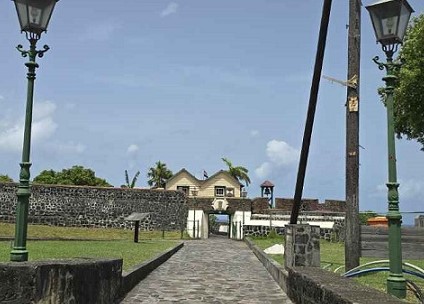There are many ways international students contribute to Arizona State University, from boosting research in the lab to bringing new perspectives to the classroom. But there’s another crucial impact they have on the university and the state: the bottom line.
According to a recent analysis conducted by an ASU economist for President Michael M. Crow, the financial contributions of these individuals are crucial to the university’s operations. Their higher tuition helps to control educational expenses for domestic students and play a vital role in funding research and teaching initiatives.
“Our international students pay a lot of tuition, which in turn helps ASU pay its faculty and staff and pay for all kinds of other operating expenses, from classroom and laboratory equipment to landscaping services and electric power,” said Kent Hill, principal research economist for the L. William Seidman Research Institute in the W. P. Carey School of Business, who prepared the analysis for Crow last month.
In the 2023–24 school year, 12,403 international students made tuition payments to the university totalling $360 million. This was enough revenue to cover 12% of the university’s operating expenses.
Hill estimates that the economic impact of university spending that is financed by tuition revenues from international students is $467 million in Arizona GDP and 4,557 Arizona jobs. There are also economic impacts from the non-tuition spending of international students.
On-campus students spend money in the local economy — housing, food, entertainment and other consumer items. “I feel like the coping mechanism for almost every international student is to go out on weekends to take a break from our studies,” said Gwen Dalisay, an ASU student from the Philippines.
“There are movies, dinners and traveling around the state to see what’s out there. So that means gas money to go places or staying in a hotel.”
Hill estimates that the non-tuition spending of international students in the 2023–24 academic year amounted to $239 million. This spending supported $212 million in Arizona GDP and 1,397 jobs.
Adding everything up, Hill finds that the total annual impact of the tuition and non-tuition spending of international students is $679 million in Arizona GDP and 5,954 Arizona jobs.
Hill said these numbers are on par with what the state receives from hosting a Super Bowl.
At ASU, numerous individuals recognize that international students play a significant role in enriching the university environment beyond the ledger sheet. “ASU represents international students from about 140 countries from around the world,” said Maxwell Goshert, executive director of the Enterprise Policy Analysis Group in ASU’s Office of University Affairs.
“That sort of interaction opens everyone up to other cultures, new ways of thinking and experiences that enrich higher education.” Goshert, who is currently pursuing his doctorate in public administration and policy at ASU’s School of Public Affairs, said during his undergraduate studies, he mentored many international students while taking a business writing class.
“As they were learning how to communicate in English, it helped me to understand how I could better communicate in terms of a business mindset and reflect on my own skills,” Goshert said.
Gideon Prempeh Owusu, an international student from Ghana and a member of the of the Enterprise Policy Analysis Group student support team, brings a wealth of experience to his PhD studies at ASU, enriching both his peers and professors through his unique perspective. “As a trained medical doctor with a Master of Public Health, I occupy a unique position within my cohort,” said Owusu, who is pursuing a PhD in health care with a focus on maternal mental health.
“Many of my classmates do not have a background in public health, so I often contribute insights during class discussions, drawing from my training and real-world experience.” Conversely, Owusu said he is embracing the opportunities that come with studying at ASU.
“One of the biggest differences I’ve noticed at ASU is the integration of technology into every aspect of learning,” he noted.
“Back home, we relied heavily on pen and paper, even for exams. Both approaches have their strengths, and I appreciate being exposed to new methods of learning.” Dalisay, who is seeking a master’s degree from the Thunderbird School of Global Management at ASU, said she is learning how to interact with others and learning from what they have to say.
“What I love about Thunderbird and ASU as a whole is that it’s all about perspective, which is a crucial part of learning,” said Dalisay, who also serves on the Enterprise Policy Analysis Group student support group.
“When I come into a classroom, I learn about other cultures and places. I learn how to interact with other international students and perhaps how we can contribute to each other’s lives.”
Crow said international students are a critical part of the infrastructure that drives innovation, sustains economic competitiveness and advances American influence worldwide. “Many international students educated in the United States go on to become permanent residents and business leaders,” Crow said.
“Nearly one in two U.S. startup unicorns has at least one immigrant founder, many of whom arrived first as students on F-1 visas.”
Crow added that ASU is a top producer of engineering and tech graduates in the country and is helping to meet the workforce demand in semiconductors, data science and other advanced sectors.
“International students are economic contributors, scientific collaborators and cultural ambassadors,” Crow said. “They are essential to the very goals the nation is trying to achieve — a growing economy, technological leadership and strengthened democratic alliances around the world.”
Arizona State University has developed a new model for the American Research University, creating an institution that is committed to access, excellence and impact. ASU measures itself by those it includes, not by those it excludes.
As the prototype for a New American University, ASU pursues research that contributes to the public good, and ASU assumes major responsibility for the economic, social and cultural vitality of the communities that surround it.

















